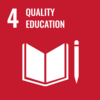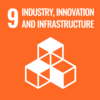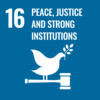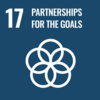Ruskin Modules are interdisciplinary, breadth modules bringing students together from different courses to create new ways to tackle global societal challenges and in-so-doing broaden perspectives.
Developed over two years through a process involving students, academics, and professional services staff from across Anglia Ruskin University‘s (ARU) community, the compulsory, credit-bearing Ruskin Modules enable students across our four campuses to work together to develop the innovative thinking and the problem-solving skills that the jobs of the future demand. Introduced in 2021, so far 4,845 students have taken a Ruskin Module with a further 3,348 students enrolled for 2023.
The United Nations Sustainable Development Goals (SDGs) provide the reference framework for each Ruskin Module. From examining the concept of social justice to identifying the ethical principles needed for our growing use of Artificial Intelligence, ARU’s Ruskin Modules provide a unique, inclusive, and transformational learning experience for tomorrow’s global thinkers and leaders.
We welcomed the underlying objective to give all students more skills in how to apply climate change to their subject areas. There is a great range and number of modules, and codesign makes them relevant and useful and we like the compulsory and diversified nature that reaches a large number of students. The institutional-wide approach made this a winning application and highly transferable.
“The introduction of the Ruskin Modules ensures that sustainability is embedded into the thinking of students of all disciplines. They encourage problem-solving, critical thinking and an awareness of global challenges, and equip students with broader skills for the workplace. They are a truly unique and worthwhile element to studying at ARU.”
Professor Roderick Watkins, Vice Chancellor



